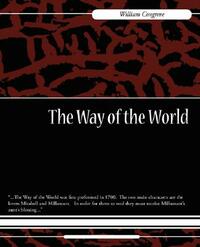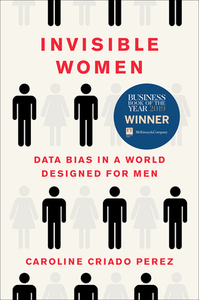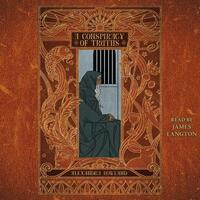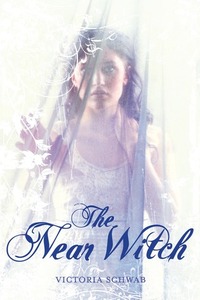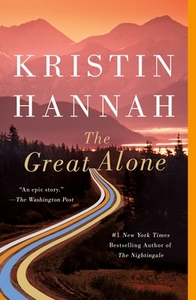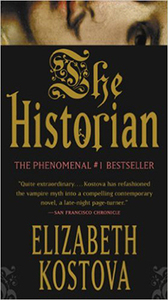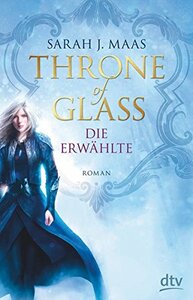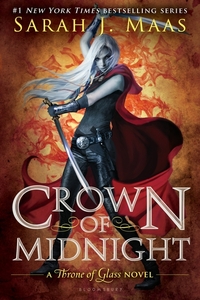You need to sign in or sign up before continuing.
Take a photo of a barcode or cover
theinquisitxor's Reviews (804)
This was the last piece I read for my British Literature class this semester. Completely witty and a comical representation of the English aristocracy during the Restoration.
This was a sweeping novel covering roughly 100 years of history about the people and the town of Marstal, Denmark. From the 1840s when Marstal was one of most prominent sailing towns, to the end of WW2, this novel follows the lives of several different people who are all connected to one-another, as well as the history and progress of the town. At almost 700 pages, it is quite a large book and one full of rich detail. The cover is also one of the best book covers I have ever seen.
The book starts out with a man called Laurids Madsen, who according to the townspeople, "went up to heaven and came down again thanks to his boots.” After Laurids, his son, Albert Madsen takes over the narration as he learns how to be a sailor and travels the world in search of a certain someone. This was probably my favorite part of the novel. I have always wanted to sail and travel on a boat across the world. It is something that I would like to experience: the open ocean, the functions of a boat, life at sea. Reading this part of Albert's journey was great, reading about his travels, explorations and dangers he encountered made me feel like I was right there on the boat too.
The book then takes a slower turn as we return to Marstal and get to know the town and its occupants more. This part felt slow to me and there were a few scenes that made me cringe in kinda a gross way. These scenes felt very unnecessary and high-key grossed me out. Other than that, I accept that this slower section was important in the building of Marstal, the town's future and the introduction of the next set of characters. After Albert, the main focus is on his semi-adopted son, Knud Erik and his mother. While we sailed through the tropics with Albert, Knud Erik travels through the icy northern Atlantic. WW2 is at the very end of the book and Knud Erik and his group of sailors face the everyday reality of German U-boats, torpedoes and bombs. This last section was my second favorite and the last several pages were a bittersweet testament to all the characters we met in Marstal.
The book starts out with a man called Laurids Madsen, who according to the townspeople, "went up to heaven and came down again thanks to his boots.” After Laurids, his son, Albert Madsen takes over the narration as he learns how to be a sailor and travels the world in search of a certain someone. This was probably my favorite part of the novel. I have always wanted to sail and travel on a boat across the world. It is something that I would like to experience: the open ocean, the functions of a boat, life at sea. Reading this part of Albert's journey was great, reading about his travels, explorations and dangers he encountered made me feel like I was right there on the boat too.
The book then takes a slower turn as we return to Marstal and get to know the town and its occupants more. This part felt slow to me and there were a few scenes that made me cringe in kinda a gross way. These scenes felt very unnecessary and high-key grossed me out. Other than that, I accept that this slower section was important in the building of Marstal, the town's future and the introduction of the next set of characters. After Albert, the main focus is on his semi-adopted son, Knud Erik and his mother. While we sailed through the tropics with Albert, Knud Erik travels through the icy northern Atlantic. WW2 is at the very end of the book and Knud Erik and his group of sailors face the everyday reality of German U-boats, torpedoes and bombs. This last section was my second favorite and the last several pages were a bittersweet testament to all the characters we met in Marstal.
This is a book not about bias, but unconscious bias. It is a book about how when you systematically forget half of the population, you exclude women from large and small things. Large things such as taxes, GDP and medical trials, to small things such as the size of your phone, shelves and car designs. These are all things that are not created equal, and when designed with a male type in mind, the women receive the disproportionate half. This book is full of research and facts that is balanced with its readability and engaging content.
There were so many things in this book that Caroline Cirado Perez talked about that I encounter in my everyday life that I never thought of as being 'male biased' but when explained make so much sense. Such as 'Why are shelves so often out of a woman's reach?' and 'Why can't I use my phone with just one hand?' To more important things like 'The chances of a doctor dismissing my pain as being "in my head" is much greater' and 'If I, a woman, ever run for an office, I will have to be prepared to face threats and scorn.' She explains these things in a systematic way, as not to degrade men or say that men are misogynistic, but rather that due to years of a perceived standard male model being used, fifty percent of the population as been on the lesser receiving end. I thought this was an important book, and one that makes you think about the world around you.
There were so many things in this book that Caroline Cirado Perez talked about that I encounter in my everyday life that I never thought of as being 'male biased' but when explained make so much sense. Such as 'Why are shelves so often out of a woman's reach?' and 'Why can't I use my phone with just one hand?' To more important things like 'The chances of a doctor dismissing my pain as being "in my head" is much greater' and 'If I, a woman, ever run for an office, I will have to be prepared to face threats and scorn.' She explains these things in a systematic way, as not to degrade men or say that men are misogynistic, but rather that due to years of a perceived standard male model being used, fifty percent of the population as been on the lesser receiving end. I thought this was an important book, and one that makes you think about the world around you.
You love them like their heart is a bird in your hand. You hold it so gently, and you cherish it
while you have it, you are filled with the wonder of it-and then they flutter their wings, and
you open your hands and let them fly. And you don't begrudge them in their flight, because
you held them for a few warm moments, and how often is it that that happens?
This was a good book, with a solid plot, characters and world building. It is a little slow and a little boring at points but overall I enjoyed the story. This is a story about stories and how they effect us, but also about what makes humans tick. This book is not what quite I was expecting (thats not a bad thing) and it told a good story. I was pleasantly surprised by world building, and in my opinion that was the biggest strength of the book. On a worldly level, we get such great descriptions of other lands and cultures by Chant, that make me wish that the book included a full map and the potential to explore these other places. Except we're stuck in Nuryevet, an icy, bleak northern land that we find out is much more than it appears. The politics of Nuryevet and the structure of society was incredibly well designed and interesting. The concept of the four rulers, marriage as a love and/or business contract as well as many other little designs shows that Rowland really put in her time and effort to creating a unique fantasy land.
The characters are also strong points of the story. Of course there is Chant, our narrator and storyteller who you progressively like more and more as the story progresses. He is unexpectedly funny, but I can't help to feel that sometimes I could not get a full understanding of his personality, nor could I fully form a persona of him in my mind. Ylfing was a great character and I started this book not expecting the amount of lgbt rep and equality shown in this story. Having several characters that would be considered lgbt was awesome and such a pleasant surprise. The society is also not Patriarchal which is such a breath of fresh air when almost all books are based on a patriarchal society.
The reason why this book got three stars is because the plot is slow, there are no huge revelations, and the story is told almost entirely from the view of a jail cell. While I usually like slower paced stories and ones that are more character driven, I feel like this still did not hold my attention as well as it could have. It also was not until about 200 pages in until the story actually started going somewhere. But I still liked it! I think this book is a good first book by an author that I look forward to seeing more of in the future. I will probably check out her next book, A Choir of Lies because of more Ylfing, world building and more stories is going to be awesome and I think Rowland's talents will only improve.
while you have it, you are filled with the wonder of it-and then they flutter their wings, and
you open your hands and let them fly. And you don't begrudge them in their flight, because
you held them for a few warm moments, and how often is it that that happens?
This was a good book, with a solid plot, characters and world building. It is a little slow and a little boring at points but overall I enjoyed the story. This is a story about stories and how they effect us, but also about what makes humans tick. This book is not what quite I was expecting (thats not a bad thing) and it told a good story. I was pleasantly surprised by world building, and in my opinion that was the biggest strength of the book. On a worldly level, we get such great descriptions of other lands and cultures by Chant, that make me wish that the book included a full map and the potential to explore these other places. Except we're stuck in Nuryevet, an icy, bleak northern land that we find out is much more than it appears. The politics of Nuryevet and the structure of society was incredibly well designed and interesting. The concept of the four rulers, marriage as a love and/or business contract as well as many other little designs shows that Rowland really put in her time and effort to creating a unique fantasy land.
The characters are also strong points of the story. Of course there is Chant, our narrator and storyteller who you progressively like more and more as the story progresses. He is unexpectedly funny, but I can't help to feel that sometimes I could not get a full understanding of his personality, nor could I fully form a persona of him in my mind. Ylfing was a great character and I started this book not expecting the amount of lgbt rep and equality shown in this story. Having several characters that would be considered lgbt was awesome and such a pleasant surprise. The society is also not Patriarchal which is such a breath of fresh air when almost all books are based on a patriarchal society.
The reason why this book got three stars is because the plot is slow, there are no huge revelations, and the story is told almost entirely from the view of a jail cell. While I usually like slower paced stories and ones that are more character driven, I feel like this still did not hold my attention as well as it could have. It also was not until about 200 pages in until the story actually started going somewhere. But I still liked it! I think this book is a good first book by an author that I look forward to seeing more of in the future. I will probably check out her next book, A Choir of Lies because of more Ylfing, world building and more stories is going to be awesome and I think Rowland's talents will only improve.
"I stroke her hair and tell her stories, the soft, sweet kind my father told. Not of witches or wind
songs, but hills that rolled and rolled until they slipped right into the sea. Of clouds that grew
tired and sank from the sky, and stretched out on the moor in tendrils of fog. Of a little girl's
shadow that grew and grew until it covered the sky and became the night, and under it, all things
slept, safe beneath their covers."
This was a good little debut novel from such a good writer as VE Schwab. It was easy to find myself emerged in the town of Near and Lexi's home, while getting lost in the moor and forest and places beyond. I could hear the wind calling at night and feel the eeriness that had taken over the land. I felt kinship with Lexi, our head-strong, stubborn protagonist, and frustration at the villagers for lashing out because they were scared and did not understand.
While I liked this little debut novel, it is not without its faults. The instalove was overdone and way too much for me. And whenever things got too kissy I skimmed over those sentences. The story was quite predictable in many ways and by the last 20 pages I was reading for the novel to end. I'm glad this was brought back with a new design, introduction and inclusion of the short story. This is a novel that I think VE Schwab's young audience will like and shows the growth and early style of a beloved author.
songs, but hills that rolled and rolled until they slipped right into the sea. Of clouds that grew
tired and sank from the sky, and stretched out on the moor in tendrils of fog. Of a little girl's
shadow that grew and grew until it covered the sky and became the night, and under it, all things
slept, safe beneath their covers."
This was a good little debut novel from such a good writer as VE Schwab. It was easy to find myself emerged in the town of Near and Lexi's home, while getting lost in the moor and forest and places beyond. I could hear the wind calling at night and feel the eeriness that had taken over the land. I felt kinship with Lexi, our head-strong, stubborn protagonist, and frustration at the villagers for lashing out because they were scared and did not understand.
While I liked this little debut novel, it is not without its faults. The instalove was overdone and way too much for me. And whenever things got too kissy I skimmed over those sentences. The story was quite predictable in many ways and by the last 20 pages I was reading for the novel to end. I'm glad this was brought back with a new design, introduction and inclusion of the short story. This is a novel that I think VE Schwab's young audience will like and shows the growth and early style of a beloved author.
"All this time, Dad had taught Leni how dangerous the outside world was. The truth was that the
biggest danger of all was in her own home."
Leni Allbright and her family escape to the wilderness of Alaska with the idea that living off the land and homesteading will help her father's severe PTSD from the Vietnam War. Little do they know that as the days grow shorter and colder, it is not just the brutality of Alaskan winters they need to fear, but the brutality in their own home. Leni and her mother have to face the fact that they are on their own, and their survival depends on themselves.
This was an amazing, tour de force of a novel that I could not put down. Literally though, as I read it in less than 24 hours, staying up most of the night to finish it. I similarly got swept up in Kristin Hannah's other best selling novel, The Nightingale which I also read in a day. I have always wanted to go to Alaska and I've read many books with an Alaskan setting. This one is special however. I could so easily get swept up in the beauty, ruggedness and harshness of Alaska while still maintaining a grounded feeling through the Allbright family and their friends.
This is a novel centered on women. The women of Alaska who survive, the women who don't and those who do what they have to to ensure their survival. This is a novel about living with those consequences and the lengths Leni and her mother go to survive. There are also so many other amazing female characters who live in Kaneq who help the Allbright's and are badass women in their own rights. Then there is Ernt Allbright. I can't call him the villain because he has severe mental health issues as a result of being a POW during a time in which there was no treatment and recognization of such issues.
I'm not going to go too much more into the story and characters because of spoilers sake, but I started this book thinking that it would be more man vs. nature, but it turned out to be much more man vs. man. It also spans a longer period of time than I was expecting and reminded me a little of The Glass Castle by Jeanette Walls. And while The Great Alone is darker, it is still full of hope, positiveness and the themes of family, friendship, and survival.
biggest danger of all was in her own home."
Leni Allbright and her family escape to the wilderness of Alaska with the idea that living off the land and homesteading will help her father's severe PTSD from the Vietnam War. Little do they know that as the days grow shorter and colder, it is not just the brutality of Alaskan winters they need to fear, but the brutality in their own home. Leni and her mother have to face the fact that they are on their own, and their survival depends on themselves.
This was an amazing, tour de force of a novel that I could not put down. Literally though, as I read it in less than 24 hours, staying up most of the night to finish it. I similarly got swept up in Kristin Hannah's other best selling novel, The Nightingale which I also read in a day. I have always wanted to go to Alaska and I've read many books with an Alaskan setting. This one is special however. I could so easily get swept up in the beauty, ruggedness and harshness of Alaska while still maintaining a grounded feeling through the Allbright family and their friends.
This is a novel centered on women. The women of Alaska who survive, the women who don't and those who do what they have to to ensure their survival. This is a novel about living with those consequences and the lengths Leni and her mother go to survive. There are also so many other amazing female characters who live in Kaneq who help the Allbright's and are badass women in their own rights. Then there is Ernt Allbright. I can't call him the villain because he has severe mental health issues as a result of being a POW during a time in which there was no treatment and recognization of such issues.
I'm not going to go too much more into the story and characters because of spoilers sake, but I started this book thinking that it would be more man vs. nature, but it turned out to be much more man vs. man. It also spans a longer period of time than I was expecting and reminded me a little of The Glass Castle by Jeanette Walls. And while The Great Alone is darker, it is still full of hope, positiveness and the themes of family, friendship, and survival.
4.5 stars
I absolutely adored this novel. The inner academic nerd in me was screaming as the characters traveled across Europe to dusty libraries, explored monasteries and conducted countless hours of research. The literary nerd in me loved the tale that the author told sweeping through hundreds of years of history and books. The part of me that loves to travel got to experience a huge array of places in amazing detail.
The scope of this novel is huge. It covers years and creates a sweeping story from New England, Oxford, Amsterdam, France and large portions of Eastern Europe including Hungary, Romania, Turkey, Bulgaria, Slovenia, Greece and more. The author definitely took her time and researched all of these locations in depth and understood the politics and relations of these countries during the Cold War and the Iron Curtain. The amount of detail this book conveys makes me highly respect it in just that aspect.
I next fell in love with the characters. I thought they were so well written and made me wish I was sitting there with them at a restaurant in Istanbul, searching through tomes in Oxford or speaking to scholars in Hungary. My favorite characters were Paul, Helen and Turgut. They felt so real and I immediately connected with them one way or another. Paul was the American history graduate student who happened into central conflict of the book and who learned and grew throughout it. Helen is the Romanian and Hungarian woman who travels with Paul also trying to discover the mystery that frames the book (she was also easily my favorite character). Turgut is the lovely Turkish professor who helps the two in so many ways while they are in Istanbul.
I have never been a fan of vampire books and the vampire genre, but decided to pick up this book because I have seen it recommended many times for people interested in the humanities, academia and European history. The vampire and Dracula story sometimes took a backseat while other parts and subplots played out. I have read a few other vampire books that I didn't care much for, but this one easily has been the best so far. I don't know how much of the folklore and 'facts' presented in the novel about Vlad Dracula are true, but it's certainly very interesting and something for me to do some research on in my free time.
I can see why some people did not like this novel, as it is a large book, with long, extremely descriptive passages that are usually irrelevant to the plot, but this never bothered me. I actually tend to like books that take this initiative, and as long as it doesn't get boring for me, I rather like being able to picture these descriptions in my head to a fine detail.
Reasons why this isn't a 5 star book for me: I thought that the daughter would be the main character based off of the book summary. I was expecting her to be the one traveling across Europe unearthing these family secrets, but it is her parents instead. Which is okay but it just caught me a little by surprise I guess. I also did not like the 'letter' format, because no one could write a letter like it is a novel and still have the reader believe someone sat down at their typewriter and wrote that all out. I kinda ignored this to an extent and just treated each letter like a flashback of some sort. I also didn't think Dracula's reason was as strong as it should have been, and he should have been a little more developed as a character than just someone we meet in the last fifty pages or so.
Despite these small flaws, I really enjoyed reading this book. It took me longer than usual to read, which is because it is overall a slower paced book, with such an extreme amount of detail that forces you to take a step back and slow down. I plan to check out Elizabeth Kostova's other two novels as they sound just as interesting and intriguing as this one. This will definitely be a book that I will think about for some time to come, and to recommend in the future.
I absolutely adored this novel. The inner academic nerd in me was screaming as the characters traveled across Europe to dusty libraries, explored monasteries and conducted countless hours of research. The literary nerd in me loved the tale that the author told sweeping through hundreds of years of history and books. The part of me that loves to travel got to experience a huge array of places in amazing detail.
The scope of this novel is huge. It covers years and creates a sweeping story from New England, Oxford, Amsterdam, France and large portions of Eastern Europe including Hungary, Romania, Turkey, Bulgaria, Slovenia, Greece and more. The author definitely took her time and researched all of these locations in depth and understood the politics and relations of these countries during the Cold War and the Iron Curtain. The amount of detail this book conveys makes me highly respect it in just that aspect.
I next fell in love with the characters. I thought they were so well written and made me wish I was sitting there with them at a restaurant in Istanbul, searching through tomes in Oxford or speaking to scholars in Hungary. My favorite characters were Paul, Helen and Turgut. They felt so real and I immediately connected with them one way or another. Paul was the American history graduate student who happened into central conflict of the book and who learned and grew throughout it. Helen is the Romanian and Hungarian woman who travels with Paul also trying to discover the mystery that frames the book (she was also easily my favorite character). Turgut is the lovely Turkish professor who helps the two in so many ways while they are in Istanbul.
I have never been a fan of vampire books and the vampire genre, but decided to pick up this book because I have seen it recommended many times for people interested in the humanities, academia and European history. The vampire and Dracula story sometimes took a backseat while other parts and subplots played out. I have read a few other vampire books that I didn't care much for, but this one easily has been the best so far. I don't know how much of the folklore and 'facts' presented in the novel about Vlad Dracula are true, but it's certainly very interesting and something for me to do some research on in my free time.
I can see why some people did not like this novel, as it is a large book, with long, extremely descriptive passages that are usually irrelevant to the plot, but this never bothered me. I actually tend to like books that take this initiative, and as long as it doesn't get boring for me, I rather like being able to picture these descriptions in my head to a fine detail.
Reasons why this isn't a 5 star book for me: I thought that the daughter would be the main character based off of the book summary. I was expecting her to be the one traveling across Europe unearthing these family secrets, but it is her parents instead. Which is okay but it just caught me a little by surprise I guess. I also did not like the 'letter' format, because no one could write a letter like it is a novel and still have the reader believe someone sat down at their typewriter and wrote that all out. I kinda ignored this to an extent and just treated each letter like a flashback of some sort. I also didn't think Dracula's reason was as strong as it should have been, and he should have been a little more developed as a character than just someone we meet in the last fifty pages or so.
Despite these small flaws, I really enjoyed reading this book. It took me longer than usual to read, which is because it is overall a slower paced book, with such an extreme amount of detail that forces you to take a step back and slow down. I plan to check out Elizabeth Kostova's other two novels as they sound just as interesting and intriguing as this one. This will definitely be a book that I will think about for some time to come, and to recommend in the future.
3.5 stars. Ok, well, this was interesting. I have been recommended this book by several of my friends and seeing all the hype over the last book in the series being released, I finally caved and read it. Overall, I thought it was a decent book, but contains some things I didn't like. I recognize this as SJ Maas's first book, so I can't hold it up to the same level as her A Court Series. And it definitely feels like a first book, but it's still solid in my opinion. The world building was great, the pretense of the plot was good, most of the character's were generally well written and formed. It definitely held my attention as I read it in about 2 days (granted, it is also a very easy read), so what didn't I like about it?
First off, there were too many cliches. Wayyy too many. Mary Sueish character? check. Love Triangle? check. Evil king? check. Mary Sue falls in love/lust with the prince? check. This all honestly got a little tiring and I was able to easily predict the events of the book, which is something that tends to crop up a lot in this genre. Celaena, despite being the 'world's best assassin' did some things she shouldn't have. Not realizing that there was a secret passage way in her room for weeks? Eaten some random candy left for her on her bed? People walking in on her sleeping all the time? People generally sneaking up on her? Whenever these things happened I was like ??? But whatever, despite these flaws I found, this book kept my attention and gave a good foundation to a series that has become extremely popular. I look forward to reading the next book, with the understanding that the writing and story will improve even more.
First off, there were too many cliches. Wayyy too many. Mary Sueish character? check. Love Triangle? check. Evil king? check. Mary Sue falls in love/lust with the prince? check. This all honestly got a little tiring and I was able to easily predict the events of the book, which is something that tends to crop up a lot in this genre. Celaena, despite being the 'world's best assassin' did some things she shouldn't have. Not realizing that there was a secret passage way in her room for weeks? Eaten some random candy left for her on her bed? People walking in on her sleeping all the time? People generally sneaking up on her? Whenever these things happened I was like ??? But whatever, despite these flaws I found, this book kept my attention and gave a good foundation to a series that has become extremely popular. I look forward to reading the next book, with the understanding that the writing and story will improve even more.
4.5 stars/ Wow Wow Okay, Holy Shit. I was not expecting this book to be this good. I literally read 95% of it today, which was nice because it was rainy and I didn't have work or anything else that needed to get done. I even ordered the next two books from B&N before I finished this one. I don't really even know where to get started with this book... the characters were much better developed and more likable than in the first book, and the plot was much better. I was a little on edge with Celaena in Throne of Glass but she completely won me over in this book.
This book is also less romance driven and focuses more on world building, character development, running around underground tunnels and tombs, finding clues and figuring out riddles. But it's still totally action packed and unexpected and just so good . The big end scene was awesome and the reveal at the end was equally jaw dropping. B&N can't ship my books to me fast enough, and I don't know what I'm going to do until they get here. (well, I do have stuff going on the next few days so I should survive lol)
This book is also less romance driven and focuses more on world building, character development, running around underground tunnels and tombs, finding clues and figuring out riddles. But it's still totally action packed and unexpected and just so good . The big end scene was awesome and the reveal at the end was equally jaw dropping. B&N can't ship my books to me fast enough, and I don't know what I'm going to do until they get here. (well, I do have stuff going on the next few days so I should survive lol)
